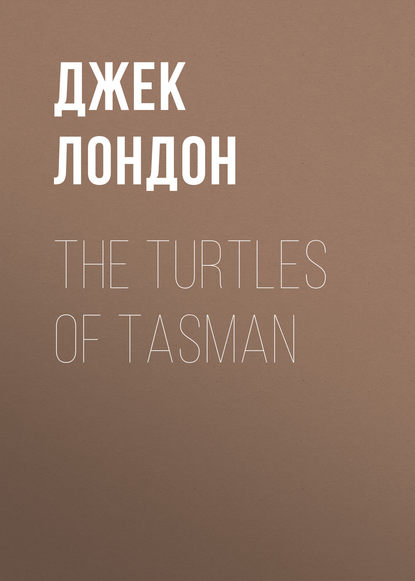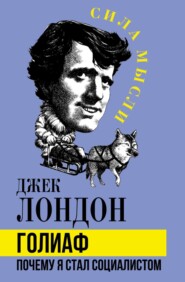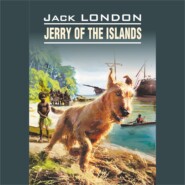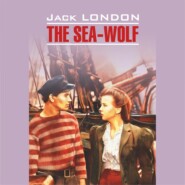По всем вопросам обращайтесь на: info@litportal.ru
(©) 2003-2025.
✖
The Turtles of Tasman
Настройки чтения
Размер шрифта
Высота строк
Поля
"Humph," the doctor grumbled. "A weeping sinew. And travelled a hundred miles to have it fixed. I'll fix it in a jiffy. You watch me, and next time you can do it yourself."
Without warning, squarely and at right angles, and savagely, the doctor brought the edge of his hand down on the swollen crooked finger. The man yelled with consternation and agony. It was more like the cry of a wild beast, and his face was a wild beast's as he was about to spring on the man who had perpetrated the joke.
"That's all right," the doctor placated sharply and authoritatively. "How do you feel? Better, eh? Of course. Next time you can do it yourself – Go on and deal, Strothers. I think we've got you."
Slow and ox-like, on the face of the Swede dawned relief and comprehension. The pang over, the finger felt better. The pain was gone. He examined the finger curiously, with wondering eyes, slowly crooking it back and forth. He reached into his pocket and pulled out a gold-sack.
"How much?"
The doctor shook his head impatiently. "Nothing. I'm not practising – Your play, Bob."
The Swede moved heavily on his feet, re-examined the finger, then turned an admiring gaze on the doctor.
"You are good man. What your name?"
"Linday, Doctor Linday," Strothers answered, as if solicitous to save his opponent from further irritation.
"The day's half done," Linday said to the Swede, at the end of the hand, while he shuffled. "Better rest over to-night. It's too cold for travelling. There's a spare bunk."
He was a slender brunette of a man, lean-cheeked, thin-lipped, and strong. The smooth-shaven face was a healthy sallow. All his movements were quick and precise. He did not fumble his cards. The eyes were black, direct, and piercing, with the trick of seeming to look beneath the surfaces of things. His hands, slender, fine and nervous, appeared made for delicate work, and to the most casual eye they conveyed an impression of strength.
"Our game," he announced, drawing in the last trick. "Now for the rub and who digs the fishing hole."
A knock at the door brought a quick exclamation from him.
"Seems we just can't finish this rubber," he complained, as the door opened. "What's the matter with you?" – this last to the stranger who entered.
The newcomer vainly strove to move his icebound jaws and jowls. That he had been on trail for long hours and days was patent. The skin across the cheekbones was black with repeated frost-bite. From nose to chin was a mass of solid ice perforated by the hole through which he breathed. Through this he had also spat tobacco juice, which had frozen, as it trickled, into an amber-coloured icicle, pointed like a Van Dyke beard.
He shook his head dumbly, grinned with his eyes, and drew near to the stove to thaw his mouth to speech. He assisted the process with his fingers, clawing off fragments of melting ice which rattled and sizzled on the stove.
"Nothing the matter with me," he finally announced. "But if they's a doctor in the outfit he's sure needed. They's a man up the Little Peco that's had a ruction with a panther, an' the way he's clawed is something scand'lous."
"How far up?" Doctor Linday demanded.
"A matter of a hundred miles."
"How long since?"
"I've ben three days comin' down."
"Bad?"
"Shoulder dislocated. Some ribs broke for sure. Right arm broke. An' clawed clean to the bone most all over but the face. We sewed up two or three bad places temporary, and tied arteries with twine."
"That settles it," Linday sneered. "Where were they?"
"Stomach."
"He's a sight by now."
"Not on your life. Washed clean with bug-killin' dope before we stitched. Only temporary anyway. Had nothin' but linen thread, but washed that, too."
"He's as good as dead," was Linday's judgment, as he angrily fingered the cards.
"Nope. That man ain't goin' to die. He knows I've come for a doctor, an' he'll make out to live until you get there. He won't let himself die. I know him."
"Christian Science and gangrene, eh?" came the sneer. "Well, I'm not practising. Nor can I see myself travelling a hundred miles at fifty below for a dead man."
"I can see you, an' for a man a long ways from dead."
Linday shook his head. "Sorry you had your trip for nothing. Better stop over for the night."
"Nope. We'll be pullin' out in ten minutes."
"What makes you so cocksure?" Linday demanded testily.
Then it was that Tom Daw made the speech of his life.
"Because he's just goin' on livin' till you get there, if it takes you a week to make up your mind. Besides, his wife's with him, not sheddin' a tear, or nothin', an' she's helpin' him live till you come. They think a almighty heap of each other, an' she's got a will like hisn. If he weakened, she'd just put her immortal soul into hisn an' make him live. Though he ain't weakenin' none, you can stack on that. I'll stack on it. I'll lay you three to one, in ounces, he's alive when you get there. I got a team of dawgs down the bank. You ought to allow to start in ten minutes, an' we ought to make it back in less'n three days because the trail's broke. I'm goin' down to the dawgs now, an' I'll look for you in ten minutes."
Tom Daw pulled down his earflaps, drew on his mittens, and passed out.
"Damn him!" Linday cried, glaring vindictively at the closed door.
II
That night, long after dark, with twenty-five miles behind them, Linday and Tom Daw went into camp. It was a simple but adequate affair: a fire built in the snow; alongside, their sleeping-furs spread in a single bed on a mat of spruce boughs; behind the bed an oblong of canvas stretched to refract the heat. Daw fed the dogs and chopped ice and firewood. Linday's cheeks burned with frost-bite as he squatted over the cooking. They ate heavily, smoked a pipe and talked while they dried their moccasins before the fire, and turned in to sleep the dead sleep of fatigue and health.
Morning found the unprecedented cold snap broken. Linday estimated the temperature at fifteen below and rising. Daw was worried. That day would see them in the canyon, he explained, and if the spring thaw set in the canyon would run open water. The walls of the canyon were hundreds to thousands of feet high. They could be climbed, but the going would be slow.
Camped well in the dark and forbidding gorge, over their pipe that evening they complained of the heat, and both agreed that the thermometer must be above zero – the first time in six months.
"Nobody ever heard tell of a panther this far north," Daw was saying. "Rocky called it a cougar. But I shot a-many of 'em down in Curry County, Oregon, where I come from, an' we called 'em panther. Anyway, it was a bigger cat than ever I seen. It was sure a monster cat. Now how'd it ever stray to such out of the way huntin' range? – that's the question."
Linday made no comment. He was nodding. Propped on sticks, his moccasins steamed unheeded and unturned. The dogs, curled in furry balls, slept in the snow. The crackle of an ember accentuated the profound of silence that reigned. He awoke with a start and gazed at Daw, who nodded and returned the gaze. Both listened. From far off came a vague disturbance that increased to a vast and sombre roaring. As it neared, ever-increasing, riding the mountain tops as well as the canyon depths, bowing the forest before it, bending the meagre, crevice-rooted pines on the walls of the gorge, they knew it for what it was. A wind, strong and warm, a balmy gale, drove past them, flinging a rocket-shower of sparks from the fire. The dogs, aroused, sat on their haunches, bleak noses pointed upward, and raised the long wolf howl.
"It's the Chinook," Daw said.
"It means the river trail, I suppose?"
"Sure thing. And ten miles of it is easier than one over the tops." Daw surveyed Linday for a long, considering minute. "We've just had fifteen hours of trail," he shouted above the wind, tentatively, and again waited. "Doc," he said finally, "are you game?"
For answer, Linday knocked out his pipe and began to pull on his damp moccasins. Between them, and in few minutes, bending to the force of the wind, the dogs were harnessed, camp broken, and the cooking outfit and unused sleeping furs lashed on the sled. Then, through the darkness, for a night of travel, they churned out on the trail Daw had broken nearly a week before. And all through the night the Chinook roared and they urged the weary dogs and spurred their own jaded muscles. Twelve hours of it they made, and stopped for breakfast after twenty-seven hours on trail.
"An hour's sleep," said Daw, when they had wolfed pounds of straight moose-meat fried with bacon.
Two hours he let his companion sleep, afraid himself to close his eyes. He occupied himself with making marks upon the soft-surfaced, shrinking snow. Visibly it shrank. In two hours the snow level sank three inches. From every side, faintly heard and near, under the voice of the spring wind, came the trickling of hidden waters. The Little Peco, strengthened by the multitudinous streamlets, rose against the manacles of winter, riving the ice with crashings and snappings.

















